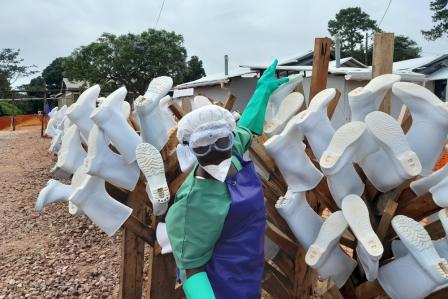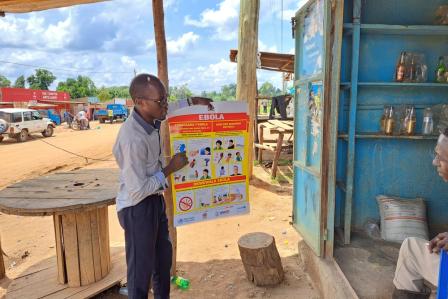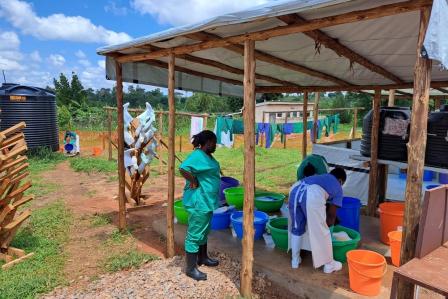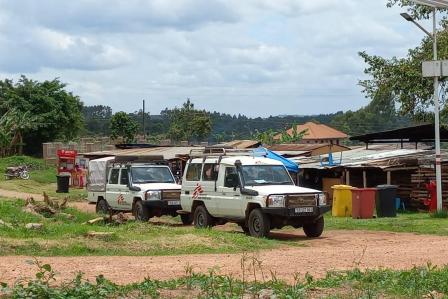How to work in an Ebola Treatment Center in Uganda? Interview with Ruggero Giuliani, Italian doctor
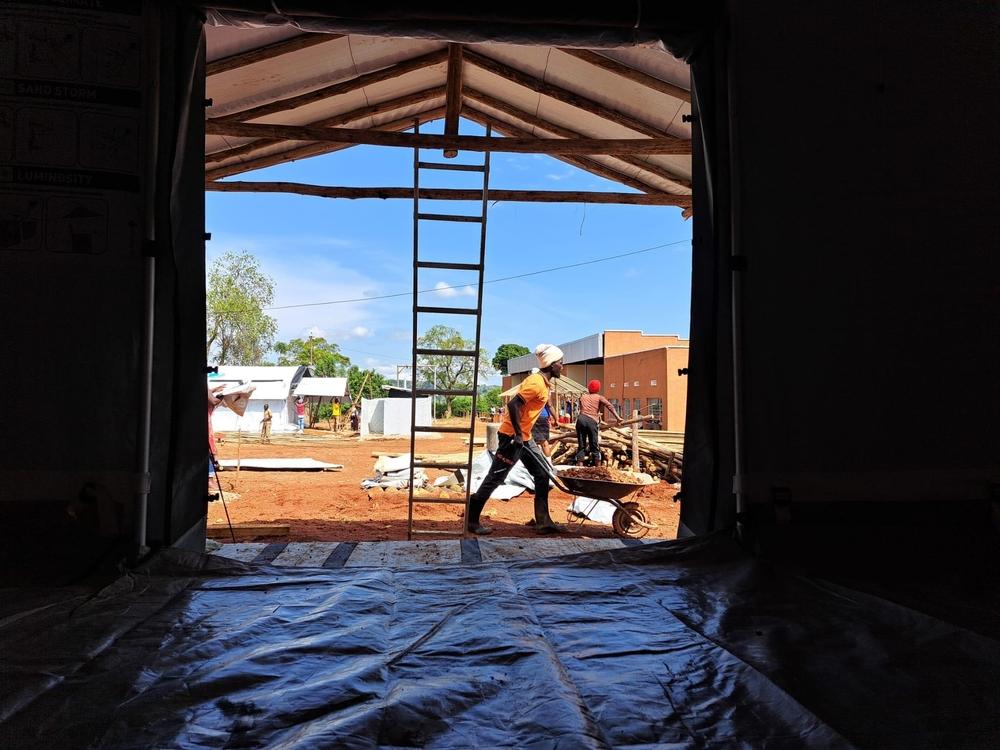
A labourer works on the construction of a 39-bed Ebola Treatment Centre in Mubende, close to the epicenter of the recent Ebola outbreak. This ETC in Mubende is the second facility constructed by Doctors Without Borders in the town and will provide increased capacity for suspected and confirmed Ebola cases. The centre will have an Intensive Care Unit and support efforts to identify and treat patients promptly, improving their chances of survival. Uganda, October 2022. © MSF/Sam Taylor
Ruggero Giuliani is an Italian doctor who works with Doctors Without Borders / Médecins Sans Frontières (MSF) in the Ebola Treatment Centre in Mubende, Uganda. Here he shares his experience responding to the outbreak in the country.
I’m a medical doctor and I’ve worked continuously for Doctors Without Borders between 2003 and 2017. Infectious diseases are my speciality, so I’ve worked in different outbreaks, cholera, Ebola as well as nutritional crises.
I think the experience in my long history in Doctors Without Borders that touched me the most was the Ebola outbreak in 2014 in West Africa. I was sent as Medical Coordinator to open a project in Monrovia at the peak of the outbreak so that was a really, very traumatic experience because we couldn’t provide a very good level of care, we were submerged by patients.
In the West Africa outbreak, we had more 20,000 patients in one year, and previously there was only 2,000 in 20 previous years. It was a privilege and scientifically very stimulating to work in this outbreak and try to find solutions that were practical. It reminded me of the old time of HIV. I was a young doctor in HIV and we were seeing all these young people dying and we were sitting at night talking about what we can do to improve the care. It was traumatic because we had 50 deaths per day, something like a war. But on the other side really stimulating to work hard and try and find clinical solutions.
In Mubende Referral Hospital, the current set up, we have two areas, one that is the Ebola Treatment Centre, before we used to have suspect and confirmed cases, then one of the peaks arrived so we had to turn all the suspect area into confirmed to accommodate the patients.
You find yourself to do things that are beyond your scope of practice. I should do my ward round, and I find myself, you know, setting up IV lines, cleaning a patient, doing nursing care, medical care, cleaning, the watchman. We have to focus on the things that have the most impact. Medical care, but also dignity of patients.
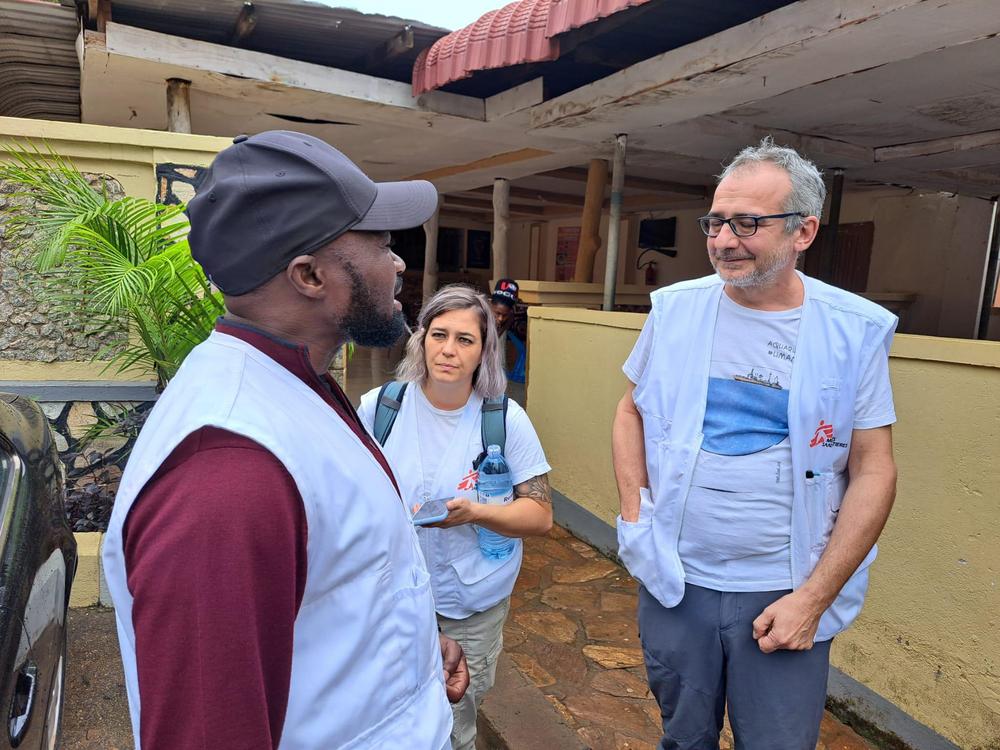
Ruggero Giuliani (right) is an Italian doctor working at the Ebola Treatment Center in Mubende, Uganda. 2022 © MSF
This disease is a very old disease, when entering the body you know, you see the reaction is massive, the way they deteriorate fast. Patients might be walking a bit when they enter and then they deteriorate fast.
We need to improve again the structure of the ETC for clinicians and medical people to move about inside. So in terms of structure, I hope the new ETC somehow will improve this part because part of the ETC is designed so that we can see the patients from outside, without having to put on Personal Protective Equipment (PPE). It’s a great concept. We need to have clear visibility on patients and to be there 24/7. In PPE you cannot do it.
Then you sweat. Me I don’t wear glasses inside so I cannot see well from far, now I am getting older so also from close, so you know without glasses, my vision is reduced. The sweat, the heat inside limits even the PPE, even if it is better than before and has improved in this aspect as we have light PPE that protect you but allow you to stay longer.
Even if this is good, the game changer is to be able to monitor to see the patient from outside. I can watch the patient every second, I can have a person monitoring vital signs you know and monitoring the progression. We know the disease progresses, so me I want to be able to act fast, so if I see that your saturation is going down, boom, I enter and give you oxygen, I see the heart rate, boom, I can give fluids so this type of continuous monitoring is what is allowing you to intervene in a timely way.
A big issue is that late arrival of patients. When they patients arrive late in the disease progression it’s very challenging. This is why it’s important to receive people early and be aggressive in their clinical management. This is key in the survival of the patient. If I can get you at day two or three in the disease, the studies show that the chance of survival increases. Every admission, and this is the outreach part, that contributes to bring patient earlier is a key to improve the survival of patients.
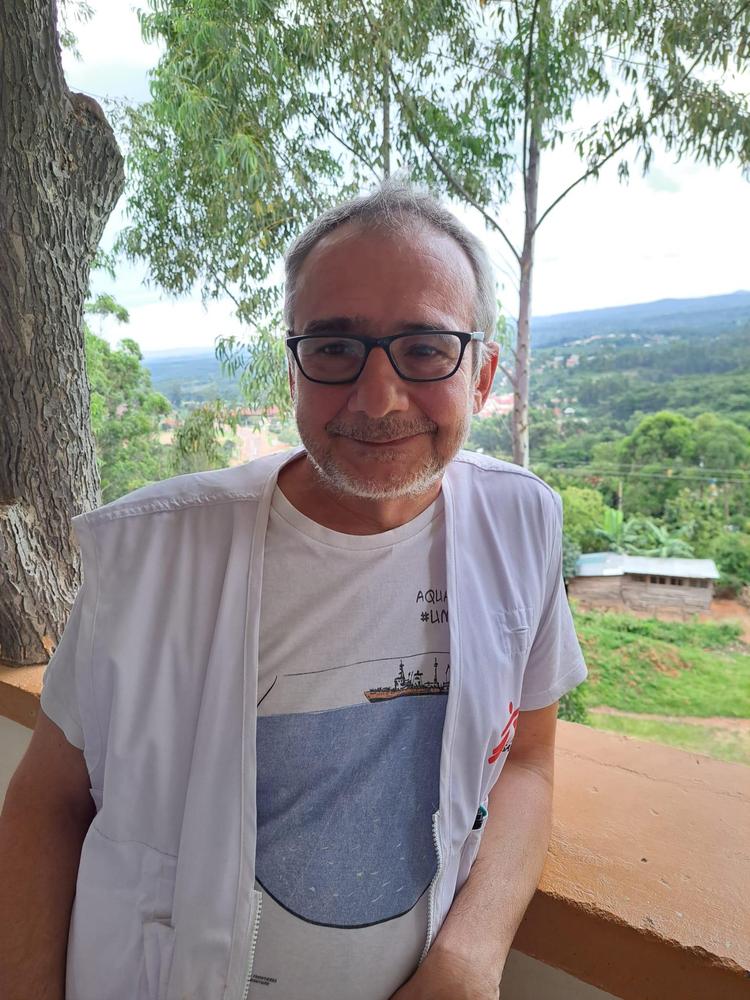
Ruggero Giuliani, doctor. Uganda, 2022 © MSF
It’s very hard when you realise that your patient will not survive. They are not going to make it. You know you can try all your best, but you know when you have these severe symptoms, you know that there is no more chance, so when you realise this, the person is still alive, tries to grab you. I remember this time there was this patient was a bit agitated, he was taking my hand “Please stay with me,” and you realise he is going to die.
On the other side, every time you have a survivor who comes out is a joy. You know we took out six survivors the other day and it was a party! In terms of coping mechanism, this helps a lot. Every time you take out people that have recovered from the disease, you say “Ahhhhh.”
Ruggero Giuliani is an Italian doctor working with Doctors Without Borders in the Ebola Treatment Centre in Mubende, Uganda.
